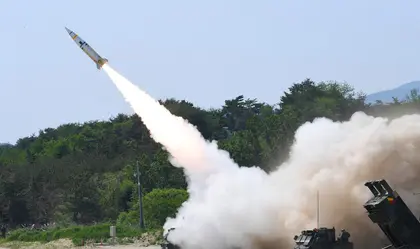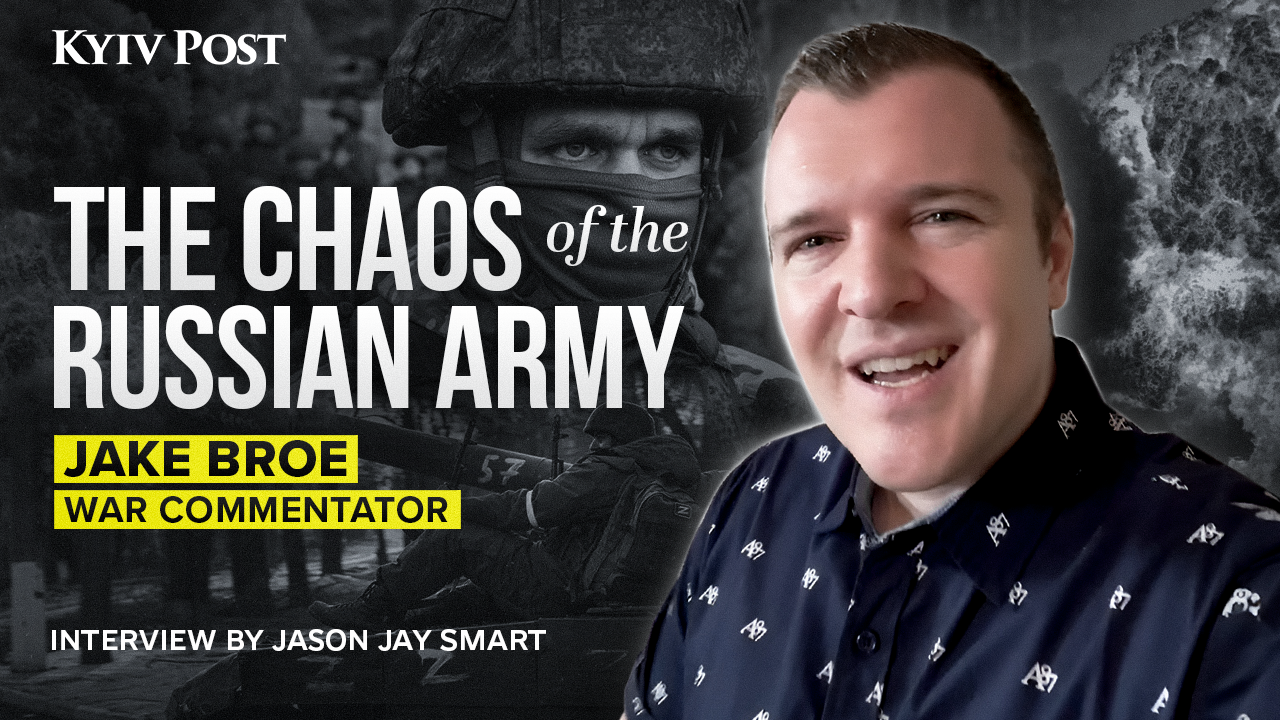After Russian President Vladimir Putin decried Ukraine’s incursion into his country’s Kursk region as a “large-scale provocation,” Washington asked Kyiv to describe the strategy of its recent operations in the Russian border region north of Kharkiv.
On Tuesday, Aug. 6, some units of the Ukrainian Armed Forces (AFU) reportedly attempted to penetrate Russia’s Kursk region, the region‘s acting governor Alexei Smirnov said, claims that have since been widely verified.
JOIN US ON TELEGRAM
Follow our coverage of the war on the @Kyivpost_official.
Putin was quick to cry foul of “indiscriminate” targeting of Russian assets, but slow to register any irony in his comments, as his unprovoked invasion of Ukraine in 2022 has killed thousands of civilians, including hundreds of children, and destroyed countless civilian buildings and infrastructure. After Kyiv’s latest counterattack, thousands more civilians have been evacuated on both sides of the border.
“The Kyiv regime has undertaken another large-scale provocation: It is indiscriminately firing various types of weapons, including missiles, at civilian buildings, residential buildings, and ambulances,” Putin complained on Tuesday.
On Wednesday, a White House spokesperson announced that President Joe Biden’s administration planned to get in touch with military leadership in Kyiv to understand the “objectives” of the Armed Forces of Ukraine’s (AFU) latest operation.

Eurotopics: Ukraine Hits Russian Target with US Missiles
“We’re going to reach out to the Ukrainian military to learn more about their objectives,” White House Press Secretary Karine Jean-Pierre told reporters when asked about the operation. Biden’s team supports “common sense” actions by Ukraine to stop attacks by Russian forces, Jean-Pierre added.
The US has cautiously accepted Ukrainian attacks on Russian assets across the border that assist in its defense against Russian troops’ invasions and aerial attacks. In May, Biden pivoted on his long-standing policy on the acceptable use of donated missiles, changing course to allow Kyiv to use American-supplied weapons against targets in Russia's border regions, to repel assaults on the northeastern Ukrainian city of Kharkiv, the nation’s second-largest.
US State Department spokesperson Matthew Miller was more direct on Wednesday, saying Kyiv’s actions were within acceptable limits for US-provided weapons and calling Moscow’s complaints ridiculous. He added that it is “not unusual for the Ukrainians not to notify us of their exact tactics before they execute them.”
“I have seen the statements from the Russian government. It is a little bit rich, them calling it a provocation, given Russia violated Ukraine’s territorial integrity and sovereignty,” he responded to reporters’ questions at a regular State Department press conference.
There are several images and videos of dozens of Russian soldiers being captured by Ukrainian Forces 🇺🇦 in the Kursk Region of Russia in the past two days
— Ukraine Battle Map (@ukraine_map) August 7, 2024
Well over 100 Russian soldiers are reported to have surrender in Kursk pic.twitter.com/WcT7Coftab
Bulgaria gives the green light to train Ukraine’s forces
One of the outcomes of the NATO summit in Washington this July was the creation of a new Alliance-led body to provide assistance and training to Ukraine’s soldiers and to coordinate the provision of military equipment and training by the Alliance’s member states. On Wednesday, in a sign of increased support for Kyiv, lawmakers in Sofia voted to allow Bulgarian forces to participate in that program.
“By adopting this decision, our state firmly demonstrates its commitment to supporting Ukraine, defending Euro-Atlantic values, and reaffirming its solidarity with the Alliance in the joint efforts to maintain international peace and security,” the Bulgarian government wrote.
The official statement added that the proximity of the war to Bulgarian borders and the importance of this conflict for the security of Europe was a major factor in the decision.
Ukrainska Pravda specified that Bulgaria, separately from July’s NATO initiative, had already sent 50 soldiers for the EU Military Assistance Mission in support of Ukraine (EUMAM Ukraine), which was also training AFU troops.
Russian milblogger and TV journalist reportedly killed while filming attacks in Kursk region
Yevgeny Poddubny, an often-cited Russian milblogger and TV journalist during Russia’s invasion of Ukraine, was reportedly struck and killed by a Ukrainian drone attack on Wednesday. As of Thursday morning Kyiv time, there have been no updates on his condition.
Poddubny was an employee of the “All-Russian State TV and Radio Company,” Ukrainska Pravda said, as well as a highly followed milblogger. He was also a regular correspondent for Moscow’s Rossiya-1 TV channel.
Moscow’s state news agency RIA Novosti reported that the blogger had been injured in the Kursk region while filming the fighting in the area around Sudzha district, and was taken to a local hospital.
Ukrainska Pravda described the blogger as “famous for his overly optimistic reports on how Russia gradually occupies more and more Ukrainian territories. Usually, this information later turns out to be false... In particular, he filmed footage at the Hostomel airbase in Kyiv Oblast in the first days of the Russian full-scale invasion of Ukraine.”
On Tuesday morning, the acting governor of Russia's Kursk Oblast, described Ukrainian attempts to infiltrate the Sudzha and Korenevo districts of Kursk Oblast, roughly at the same time that the Russian Ministry of Defense reported that its reserve troops had been deployed on the Russian-Ukrainian border.
A state of emergency was declared in the Kursk region on the second day of Ukraine’s operation there.
Yevgeny Poddubny, was killed in the Kursk region.
— PS01 △ (@PStyle0ne1) August 7, 2024
He was conducting a report from Kurshchyna, talking about "great losses".
He is one of them 😁 pic.twitter.com/uFcK0BGb1y
This is allegedly Poddubny arriving at the Kursk hospital
— PS01 △ (@PStyle0ne1) August 7, 2024
still alive@sternenko
source: https://t.co/FDNMsI2fkA pic.twitter.com/7qjTFbcqsk
You can also highlight the text and press Ctrl + Enter









